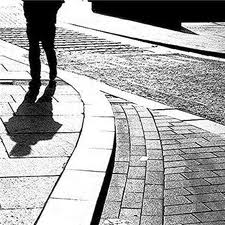 The renowned storyteller, Peninnah Schram, says that the earliest story we can remember is (the) one that informs our life.
The renowned storyteller, Peninnah Schram, says that the earliest story we can remember is (the) one that informs our life.
The earliest story I remember is the one about how my pious grandmother walked five miles on a Friday night, with a chicken bone lodged in her throat, to the closest doctor. She refused to ride on Shabbat. The doctor told her that, the bumpiness of cars being what they were (this was the early 20th century), she probably would have died had she agreed to be driven.
It was a story about the consequences of faith. (Granted, not all stories of faith have “happy endings,” but as a child, the story worked for me.)
There was another story that I heard from my mother, of blessed memory, that was also a beacon in my childhood, and it was about the theme of personal responsibility.
My mom graduated high school in Cleveland in 1933. She was the salutatorian and was granted a full scholarship to Western Reserve University. (The merger with Case Institute of Technology came later, in 1967.)
It was an impressive accomplishment in those days, especially for a woman.
She described how she walked up the stairs to the registrar, stood at the door for a moment, thought about it, turned around and walked down.
The reason was that, with the country still in the throes of the Great Depression, my mother decided that her family needed her weekly paycheck more than she needed a degree. Perhaps she thought that she’d get her crack at university “some day.”
The years passed, she married, held down the home fort while my father was a traveling salesman, eventually returned to the work force, and other than the auditing of occasional college courses, the “some day” never came.
I was reminded of her story recently when a neighbor loaned me his copy of the film “Flash of Genius” (which highlights the concept that the ownership of an inventor’s original idea is indicated by the “flash of genius” he experienced). There is a moment in the film when the inventor mentions that his degree was from Case Western Reserve, a fact that considerably impressed the people with whom he was meeting.
It rang a bell. “Guess what,” I told my neighbor, “that could have been my alma mater.”
In 1967, the year I graduated high school, I was accepted at Case Western. Like many of my classmates, I had simultaneously applied to universities in the U.S. and to schools for a year in Israel. The plan was to get accepted to college, defer for the duration of the year in Israel, return to get a U.S. college degree and eventually make aliya. (Somewhere in a parallel universe, I planned on aliya concurrently with a career in U.S. politics. Note: My favorite genre in high school was science fiction.)
However, you know the Yiddish expression — the one about G-d laughing.
The Six Day War broke out.
A few weeks later, I kept an appointment with the Case Western registrar and explained that I was going to Israel “for a year.” She was cordial and accommodating and told me that they’d be happy to hold my place.
I thanked her, walked out the door and down the steps (probably the same ones my mother walked down in 1933, in view of the height of the ivy), and a few days later got on a plane and never looked back.
Watching “Flash of Genius” gave me pause. My memory juxtaposed the two stories. My own occurred exactly forty-four years after my mother’s, and this summer I celebrated my forty-fourth year in Israel.
There are no coincidences, and this one intrigued me.
I called a family friend, Rabbi Natan Siegel, who is scribe and a teacher of Torah. I asked Rav Natan if there was any significance to the number forty-four.
He said that the first thing that came to his mind was the mem daled written on a page, which to him says, “mei-Hashem” – “From G-d.”
I pondered that. It led me to think that when a person is faced with a dilemma, there is a little piece of G-d that enters his mind and heart, and if he listens to it, it will help him make the right decision.
My mother would tell the story of her own walking away with no remorse or bitterness. Though it was a story about self-sacrifice, she never thought of her decision as heroic, because her philosophy of life was that, sometimes, “You’ve just got to do what you’ve got to do.”
I thank Hashem that He helped me make the right decision in 1967. The moment my feet touched the ground in Israel, I thought, “I’m home.”
The two stories are not the same. My mother gave up a college education to work to help support her family in difficult times. I flew off into the magical spell of the Holy Land. I can no longer question my mother about what she felt. I know that I felt only euphoria.
The power to walk away, when it is the right thing to do, demands strength or courage, or – sometimes – just resolve. The decision to make a decision. Self-help and positive thinking gurus say that we also have to make the decision to be happy.
I believe that G-d wants the stories that inform our lives to lead us closer to Him. Let’s try to find that quiet moment to sit still, and recall. The revelations will come.
Toby Klein Greenwald is an educator, community theater director and the editor-in-chief of WholeFamily.com. For more OU Holiday Content, please visit the Pearl & Harold Jacobs Holiday Resource Center.
The words of this author reflect his/her own opinions and do not necessarily represent the official position of the Orthodox Union.



